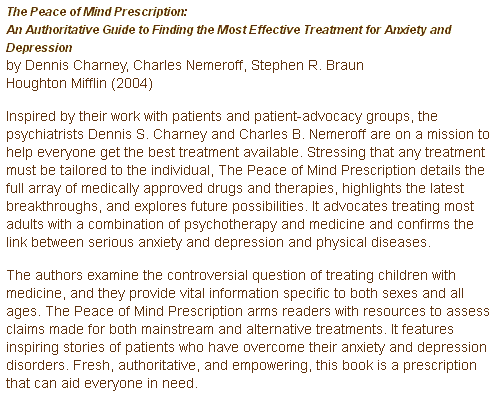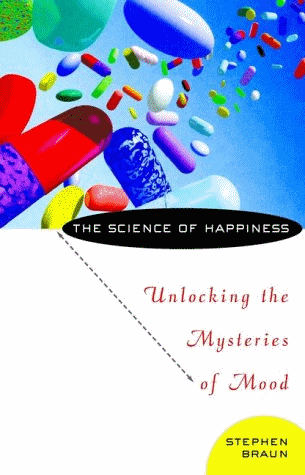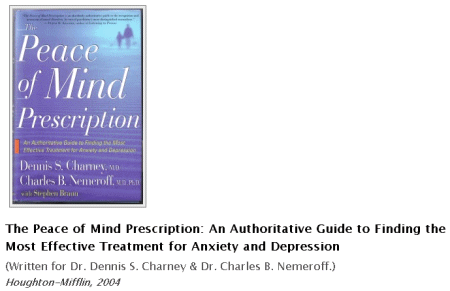Yesterday, I got an email asking for the source of something I posted recently. It was from a pretty incriminating document from Forest Laboratories entitled Lexapro: FY04 Marketing Plan [available here]. I originally got the reference from one of Paul Thacker’s POGO articles [You’re Fired: Forest Lab’s CEO May Be Banned from Federal Healthcare]. The reason it’s so incriminating is obvious ["…developed by (or ghost-written for) thought leaders"]:
It was in a section called "Marketing Tactics" [stamped "Confidential"]. As I was looking it up, almost without thinking, I clicked through the section but woke up when I saw this:
Everything else in the section had an explanation for why it was there – everything but this. It was from a time when Dr. Nemeroff was Chairman at Emory. I didn’t know about any connection between Dr. Nemeroff with either Forest Laboratories or Lexapro, so I Googled <nemeroff+lexapro>. Up near the top was a link to something on the Lexapro web site – a page of suggested readings one of which was:
Here we go again. In 2004, Nemeroff was Chairman of Psychiatry at Emory and Editor-in-Chief, of Neuropsychopharmacology. That year, Dennis Charney was promoted to Dean at Mount Sinai Medical School. I actually kind of doubt they had much time to spend on a Self-Help Book. Monotonous isn’t it?
So, who is Stephen R. Braun? Well he’s written a couple of books:
Insert: And so friend Martha came by while I was nosing around and muttering about this. She went home and found Stephen R. Braun’s Webesite [braunmedicalmedia.com] describing his professional medical writing career, and it had this to say:
Note: No, Martha doesn’t ghost-write this blog, but she’s one fine Internet searcher.
… Blasting "the drug company party line" that presents depression as a simple matter of out-of-balance brain chemicals, he sets forth cautionary case studies, meant to illustrate how dishonesty, manipulation and corporate greed can corrupt drug development, approval and marketing. (this is interesting!) Braun also takes exception to biological psychiatry’s view of depression as a solely neurochemically-based disease; he advocates a holistic approach to mental illness that recognizes that "talk therapy" is a vitally important component of the battle against depression. The most interesting part of the book is the nuanced epilogue, which details in diary-like fashion Braun’s own successful experience with a new drug, Celexa, after Prozac and Ritalin failed…







OMG. I wonder if Nemeroff ever had a working soul, or if he was born with a lost moral compass?
Anyone want to make book on what Charney and Nemeroff will claim? Some bs like we scrutinized the work product of Stephen Braun. LOL.
Don’t forget that Charney’s name graced the author list of the Cyberonics infomercial that brought down Nemeroff for nondisclosure of financial interests in 2006. Remember the Cyberonics debacle? The review that Sally Laden wrote?
Charney and Nemeroff also cooked up the Emory-GlaxoSmithKline-NIMH Collaborative Mood Disorders Initiative (1U19MH069056). This project was supposed to do wonderful things for the pipeline of novel antidepressant drugs. The productivity of this multi-million dollar boondoggle can best be described as pitiful. And now that Nemeroff is out of Emory, the project management there has been inherited by Helen Mayberg, another of the Cyberonics co-authors. She is neither a psychiatrist nor a pharmacologist but a neurologist. As a former Emory faculty member, maybe NIMH Director Thomas Insel would like to explain that?
And then there was Charney’s editorial:
http://1boringoldman.com/index.php/2010/12/01/roaches/